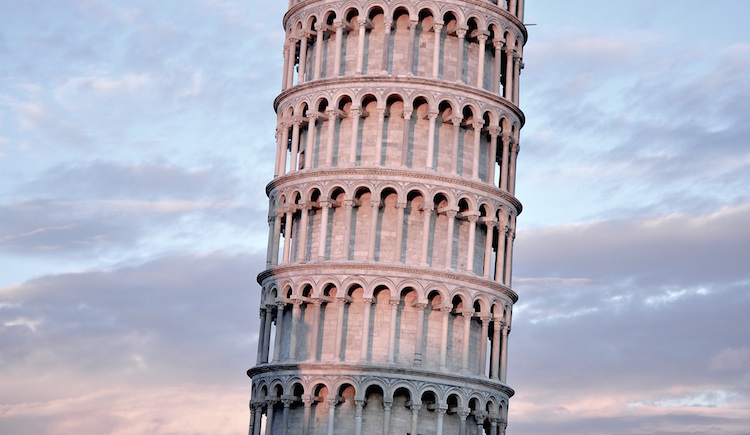I’ve been stewing all last week on whether or not to write about the refugee crisis. There’s already plenty of voices in the conversation. As I considered what I might say, it’s changed depending on which day of the week I considered writing it. At the risk of being just another voice, here’s what I would like to encourage you as you make up your mind on this discussion.
It’s all about fear.
Too simple? Fear of others, fear of the unknown, fear of the future, fear of what any of this might cost us. And I get it. I’m afraid too. In fact, as I write these words I’m sitting in Washington DC. You know, the place ISIS said they would target this week. I’m just a few blocks away from the White House, their prime target. I received more than a few looks and comments when we told people where we were going this week. As I walk around these streets and notice all the police with their guns, it’s easy to dwell on how much there is to fear.
But as a Christian, I’m not called to live in fear.
The apostle John said it like this,
“There is no fear in love. But perfect love drives out fear…” (1 John 3:18a).
It appears the choice for us is quite simple: choose love or fear. You cannot have both.
One problem though;
logic tends to produce fear. I’ve seen plenty of logical arguments this week as to why it’s in our best interest as Americans to block any refugees from settling in our states. Recently, the Governor of my state “called on the federal government for an immediate halt on the resettlement of all refugees in Arizona, not just Syrians” (
source). As an American, it makes sense.
I’ve seen arguments asking me whether I’d eat grapes (or M&Ms) if I had ten of them and two of them turned out to be poison. It’s a weird question, but who wants to eat poisoned grapes? No, you can have your nasty grapes thank you. But here’s where this analogy breaks down.
Are the grapes made in the image of God? Did God ask me to lay down my life for the remaining grapes? Sorry little analogy, you are no longer applicable.
Will I allow logic to take me to a place of fear, or will I (illogically) allow love to drive out fear?
Logic will always take us to a place where we come out ahead. And that’s the problem with trying to live out your faith logically.
God calls us to live out our faith precisely in ways where others come out ahead. In fact, that’s the essence of the gospel. But it’s hard to justify logically.
It’s all over the Bible. There’s that story of the Good Samaritan (see.
Luke 10), which shockingly has a few familiar details to what we’re currently seeing. Or that infamous city of Sodom and Gomorrah.
Wait, did Jeremy just combine Syrian refugees AND homosexuality in ONE epic blog post? Sort of.
Sodom and Gomorrah isn’t actually a story focusing on homosexuality. The real story there was the shocking lack of hospitality of the people. Ezekiel sums it nicely for us in case we are confused: “Now this was the sin of your sister Sodom: She and her daughters were arrogant, overfed and unconcerned; they did not help the poor and needy” (Ez. 16:49). As one theologian argues, “Hospitality to the stranger represents the most elemental form of human righteousness†(
source). How does our conversation about refugees reflect our views on hospitality?
Or, consider an illustration Jesus Himself once used.
“Then the King will say to those on his right, ‘Come, you who are blessed by my Father; take your inheritance, the kingdom prepared for you since the creation of the world. For I was hungry and you gave me something to eat, I was thirsty and you gave me something to drink, I was a stranger and you invited me in, I needed clothes and you clothed me, I was sick and you looked after me, I was in prison and you came to visit me.’ “Then the righteous will answer him, ‘Lord, when did we see you hungry and feed you, or thirsty and give you something to drink? When did we see you a stranger and invite you in, or needing clothes and clothe you? When did we see you sick or in prison and go to visit you?’ “The King will reply, ‘Truly I tell you, whatever you did for one of the least of these brothers and sisters of mine, you did for me.’” (Matthew 25:34-40).
We may not want to treat others this way, but we might grudgingly conclude it’s the only way we’ll ultimately be like Jesus to others. But that misses the absurdity of the illustration. As Christine Caine has pointed out,
“when we reach out to the poor, the marginalized, the prisoners, and the broken, we are not being like Jesus to them; they are like Jesus to us.”
You’ll have a hard time seeing Jesus if all you choose is logic and the fear that accompanies it. But if you ever get crazy enough to start living according to this upside-down-Kingdom, you might start to see Jesus in new ways as love drives away the fear you have.
In case you missed it, France is currently welcoming refugees, even after the attacks they personally experienced. What an illogical thing to do. I pray we can be as illogical in the ways we follow Jesus.
Do You Want to Read the Bible Without Falling Behind?
Sign up your email and I’ll send you a PDF to download and use my custom-made reading plan system. There’s no way to fall behind on this system and every day will be different no matter how long you use it!
I’ll send future content directly to your inbox AND you can dive into the Bible like never before.





